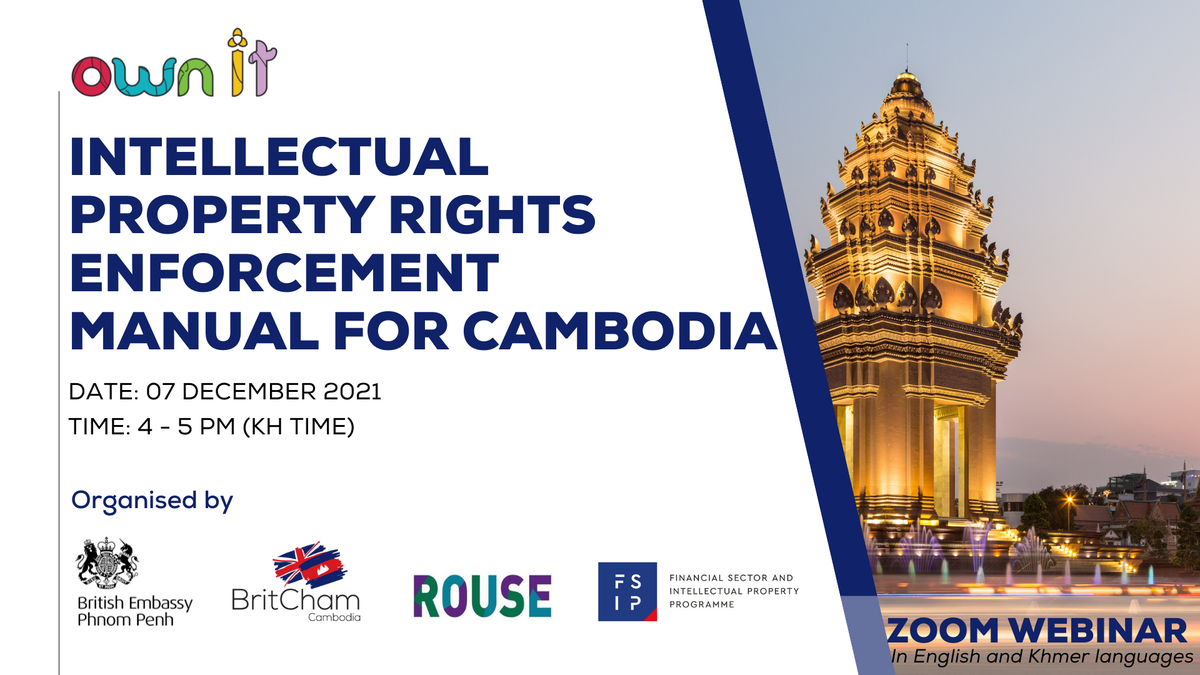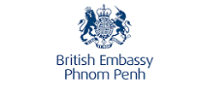Home
Join us on our webinar to launch the Cambodia Intellectual Property Manual in conjunction with Rouse and the FSIP (South East Asian Financial Sector Intellectual Property Programme) on December 7th from 4 - 5 PM ICT.
IP enforcement remains a source of business concern in Cambodia. The inadequacy of IP enforcement information and resulting lack of transparency is a barrier for foreign investors.
The Manual on IP enforcement in Cambodia has been developed for businesses operating in or planning to expand into Cambodia. It is published by the British Chamber of Commerce, Cambodia and aims to provide foreign businesses with a picture of how the IP enforcement system works in Cambodia.
It includes details of the laws and regulations as well as the IP enforcement procedures in Cambodia.
The FSIP Programme
The South-East Asian Financial Sector and Intellectual Property (FSIP) Programme is part of the UK Prosperity Fund. The key objectives of the project are to strengthen the overall business environment across six SE Asian countries. More productive SE Asian economies can also provide greater trade opportunities for international and UK business.
One of the work streams under the FSIP Programme is the Intellectual Property (IP) work stream. In many developing countries, market failures and weaknesses typically manifest a range of IP challenges. These include lower quantities of and weaker quality IP creation as
well as insufficiently strong legal remedies to protect and enforce IP (e.g., through civil court, administrative and criminal IP protection systems). IP system transparency is also a challenge in any developing country when the IP systems are not well-tested, clear and robust. A large informal economy magnifies IP problems.
One of the projects under the FSIP Programme aims to address the lack of adequate IP enforcement information through an IP enforcement Manual.
The Manual uses a definition of enforcement that parallels the World Trade Organisation's Trade Related Aspects of Intellectual Property (TRIPS) Agreement. This means it focuses on trademark and copyright enforcement procedures – which in common parlance means trademark counterfeiting and copyright piracy.
The types of enforcement systems used to deal with these two issues are most commonly criminal, administrative, including Customs, as well as the civil courts. Other forms of IP exist (e.g., patents, designs) but their enforcement is more usually limited to, or appropriate for civil court systems only.
Dec 7, 2021
4:00 PM - 5:00 PM GMT+7
Agenda
Tickets
- Complimentary Ticket
- Complimentary










